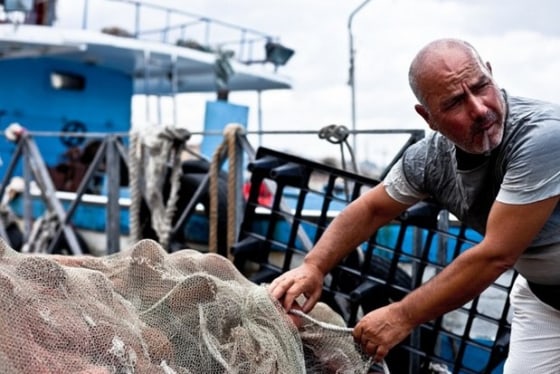If your work day sometimes seems to consist of nothing but boring meetings, coffee spills, and computer glitches, consider yourself lucky.
Each year thousands of U.S. workers die from injuries on the job. In fact, the Bureau of Labor Statistics‘ National Census of Fatal Occupational Injuries shows a preliminary total of 4,547 fatal work injuries in 2010, down slightly from the final count of 4,551 in 2009.
The rate of fatal work injury for U.S. workers in 2010 was 3.5 per 100,000 full-time equivalent workers, the same as the final rate for 2009 — but that may change. Data released in the last two weeks offers a preliminary count. The final 2010 data will be released in the spring of 2012 and shouldn’t be much different.
Forbes.com slideshow: America's most dangerous jobs
The BLS breaks down the numbers to tell us what the most dangerous professions of all in America are. The top spot on the list goes to fishermen and fisherwomen, who lost their lives at a rate of 116 per 100,000 full-time workers. Fishing is a legendarily hazardous occupation, particularly Alaskan shellfishing, and fatalities have been high in recent years. High compensation helps offset the risks and seasonal fluctuations that come with the work.
Loggers and airplane pilots had the second and third deadliest jobs, respectively. Both are menaced by the threat of malfunctioning machinery and falling heavy objects. Fifty-nine loggers and 78 pilots and flight engineers were killed on the job in 2010.
Some occupations that seem dangerous, like firefighting and tractor operation, are actually relatively safe; both of those jobs, for example, are less dangerous than being a car mechanic. The safest jobs of all, with less than 1 death per 100,000 full-time workers, include secretaries, salespersons, and librarians.
Forbes.com: The best big cities for jobs
Thirty-nine percent of all fatal workplace injuries happened in transportation incidents, which include car accidents, overturned vehicles and plane crashes. More than half of the fatal transportation incidents occurred on highways. The second-highest cause of worker fatalities was assaults and violent acts, which accounted for 18 percent of deaths. The preliminary data shows that workplace suicides fell slightly in 2010 to 258 after climbing to a high of 263 the year before.
Men suffered an on-the-job fatality rate of 5.7 per 100,000 full-time employees, compared with only 0.6 for women, and accounted for 92 percent of all deaths. This is partly because there are disproportionately more men in dangerous industries like construction and mining. Still, women face their own dangers. More than a quarter of the women who died on the job were victims of homicides, compared with only one in 10 men. That is at least partly because of a concentration of women in workplaces like food and beverage stores, where a majority of all deaths are homicides.
The private sector proved more deadly than the public sector, with private industry accounting for 90 percent of fatalities. Within the private sector, the construction industry saw the largest number deaths, but the end of the real estate boom has contributed to a large decrease in mortality there: Annual construction fatalities have fallen by nearly 40 percent since 2006. Some predict that the construction industry may never fully recover from the recession — but that could ultimately mean thousands of lives saved.
Next time you find yourself complaining about piles of paperwork, obnoxious co-workers and demanding bosses, remember that your work situation could be much worse.
Forbes.com: 10 e-mail habits that send the wrong message
Forbes.com: 10 tips for dealing with a lazy co-worker
Forbes.com: 10 horrible reasons to get rich
Forbes.com: College degrees with the biggest salaries
